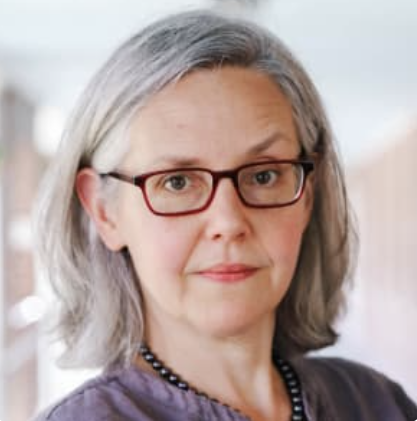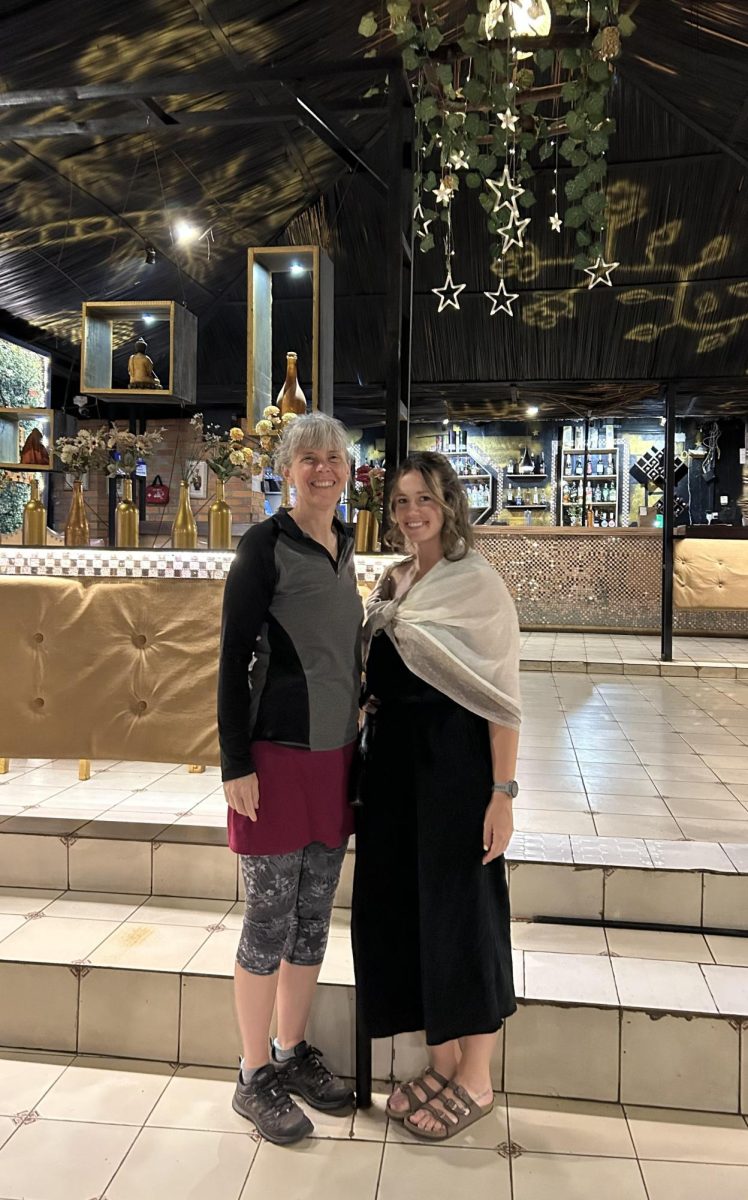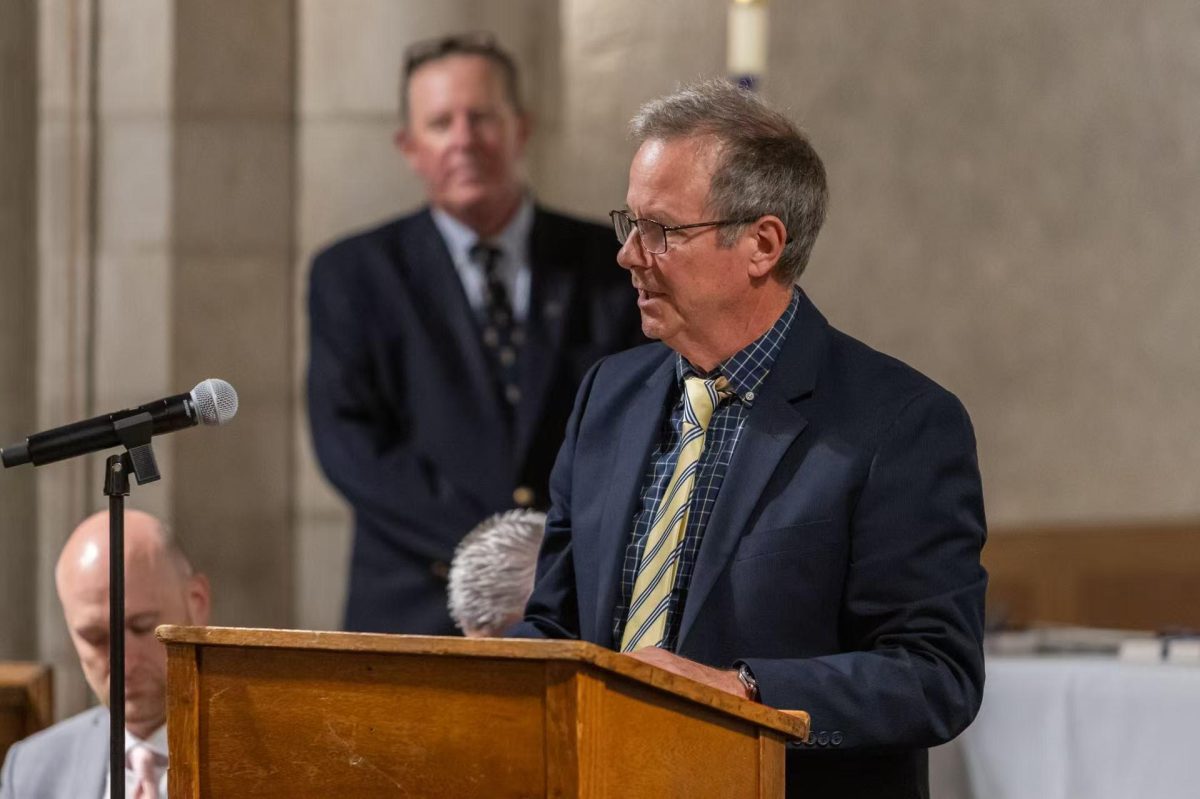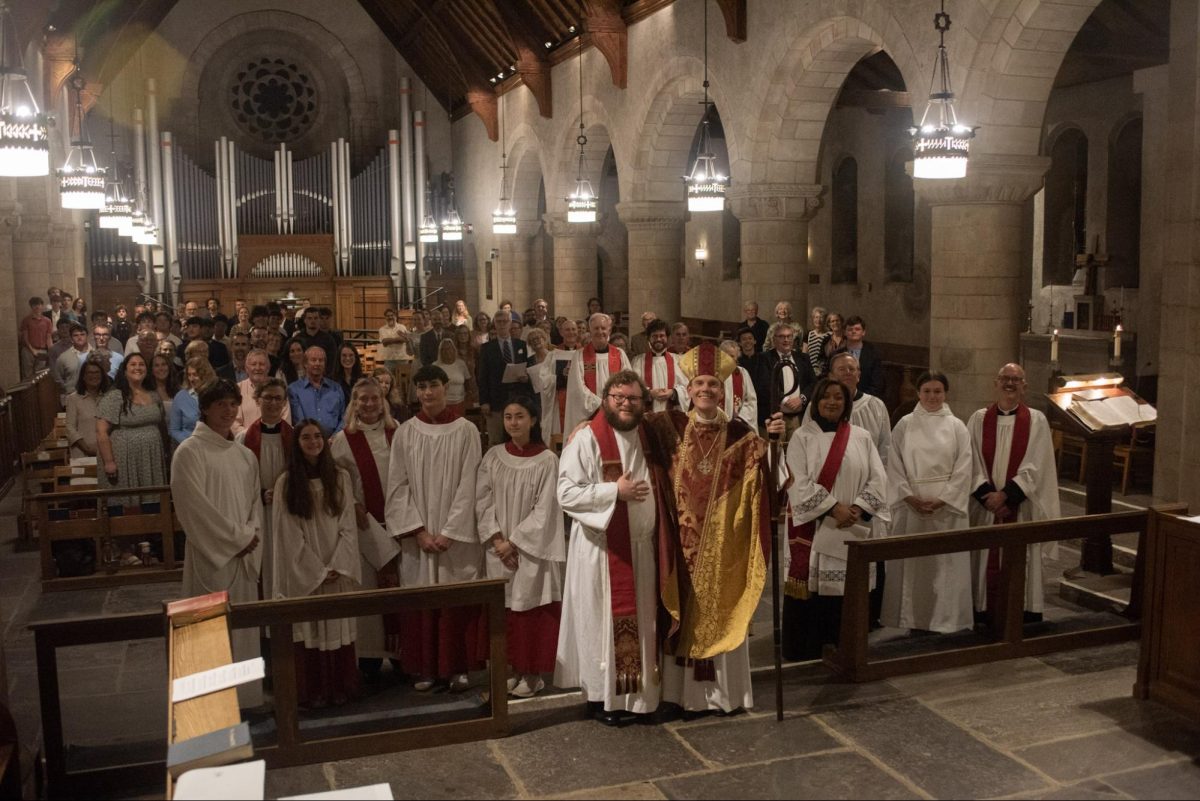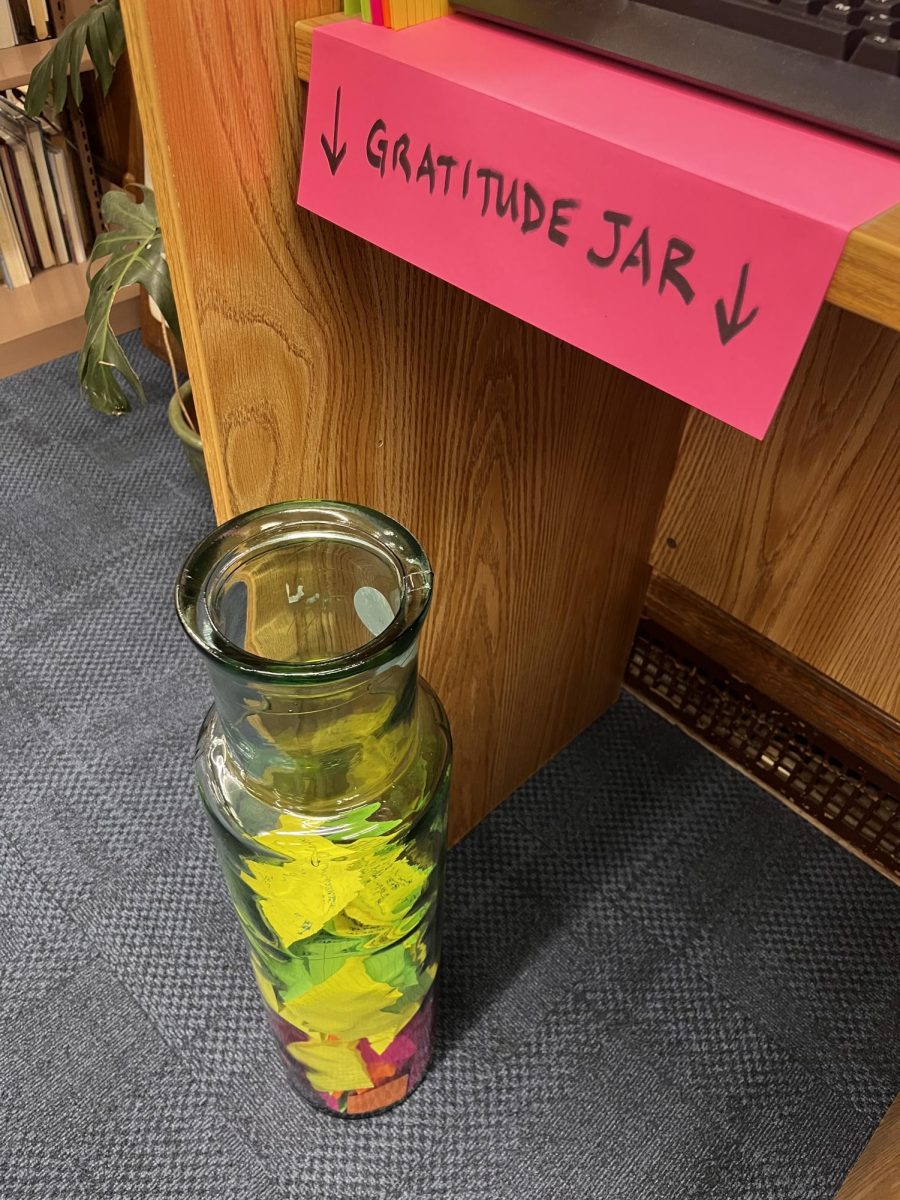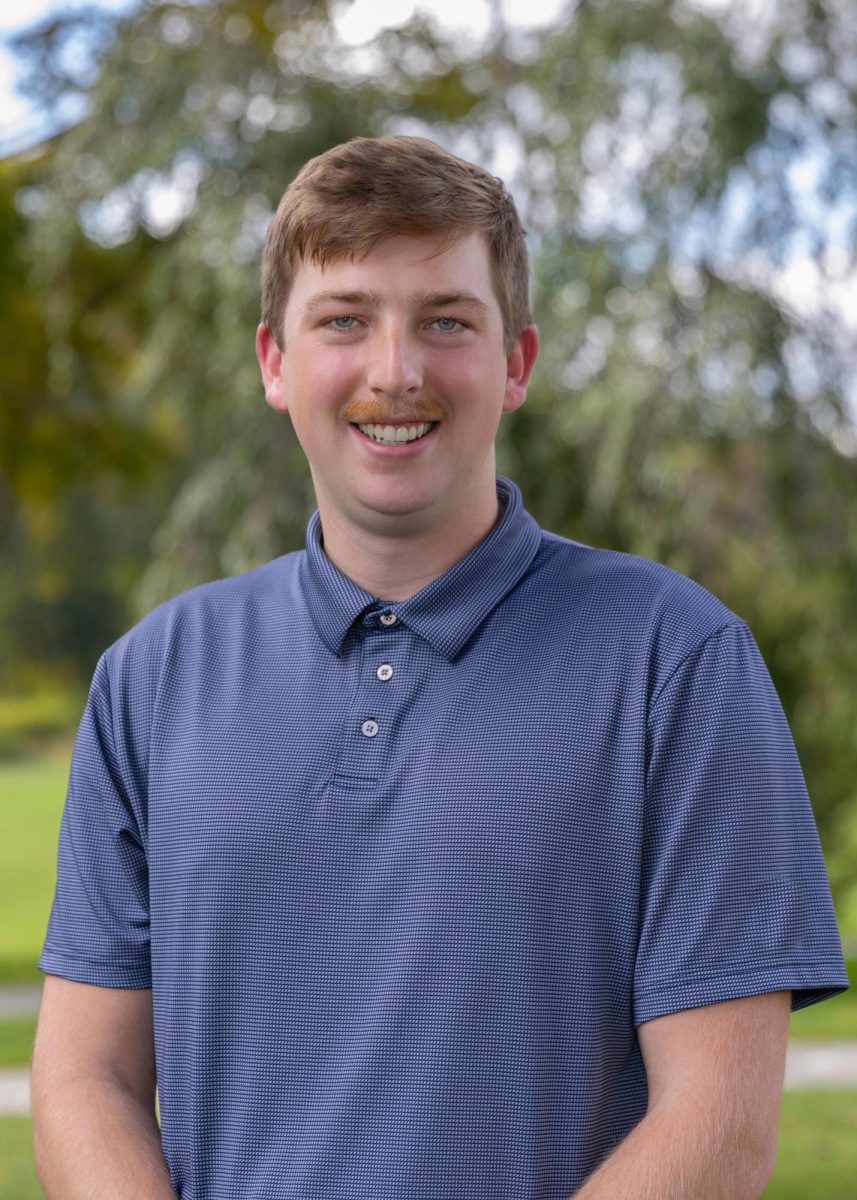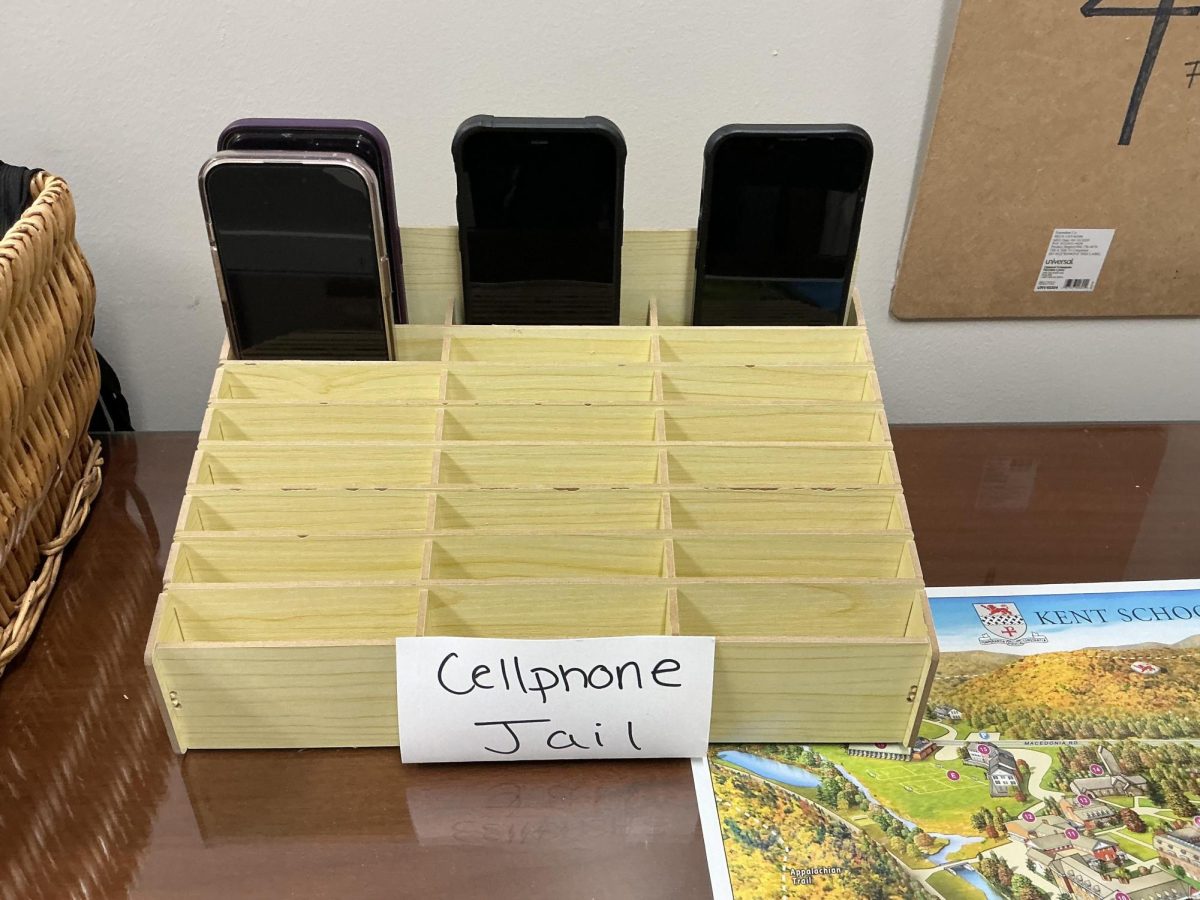Ms. Voorhees first came to Kent when she moved here in 2004, when her husband was hired as the school chaplain. At the time, she had just finished law school, a “sneaky fact,” she said, because most people don’t know she’s a retired member of the Connecticut bar. She never practiced, but her legal training shows up here and there, most recently through her occasional work with Ms. Thompson in the Constitutional Law class.
Before all of that, though, her background was in book publishing, which made her eventual path to the library almost inevitable. “I was wanting to find a professional role at Kent,” she explained. “And so to my great delight, there was a need in the library. It was a great convergence of my book background and, to some small degree, my legal training.” She began in 2009 as a library assistant, but within a year was managing the space, and soon after became Library Director. Around the same time, she began overseeing the New Student Seminar (NSS), which marked her first step into the classroom.
When she inherited the class, it was still modeled after “General Studies,” a course taught for decades by Bill Armstrong, the teacher whose portrait now hangs above the Bloomberg terminal. “It used to be a year-long class about study skills, “ she said, “but over time it became more about the transition to Kent, how to manage life in a new environment, how to find support, and how to grow as a person.” She described how the course evolved alongside changes in the school itself: the introduction of KPOP, longer orientations, and the new ways of supporting students beyond academics. What began as a study skills course is now the foundation for Kent’s Community Learning program, a four-year curriculum exploring everything from emotional wellbeing to consent. “The first lesson in every class is about consent,” she said. “It’s incredibly important in this day and age. It’s a conversation we weren’t even having ten years ago, and that’s amazing.”
Her teaching philosophy centers on helping students understand their impact within the community. “We’re not here to tell you what to think, “ she said. “But we do want you to understand how your actions shape the people around you.” She smiled as she recalled overhearing students jokingly reference “conflict resolution” or “active listening” in the dining hall. “It means the language is entering their awareness, and that’s enough. We’re not prescribing behavior, we’re creating awareness.”
Mrs. Voorhees has always viewed her role as something larger than instruction and is committed to progress on campus. Whether in the library or the classroom, she sees herself as part of the web of care that sustains the community. “One of the reasons I’ve always loved working here,” she said, “is that my role allows me to get to know any student on campus. That’s a privilege. We’re all here for students’ growth, learning, and joy.”
That sense of community extends even to unexpected places, like when she hosted the homecoming dance in the library. “When the dean first asked, I think he expected me to say no,” she laughed. “But I said absolutely. Let’s move the furniture, turn on the lights, and make it a celebration.” To her, that moment was an opportunity to make the library a truly collective space which she feels is the purpose of having a place like that on campus. Though she never planned on becoming a teacher, she’s found purpose here. “I’ve learned more from working with high school students than I ever could have imagined, “ she said. “The transformational nature of this age, watching students grow from early high schoolers into adults who are ready to take on the world, it’s amazing.”
Her goal, she said, is simple but poignant: “If we’re doing our job well, students leave here excited about their own learning. That’s what we should be doing.” She paused, then added quietly, “ We can’t create a utopia, but we can move toward one, a community that’s respectful, kind, accountable, and curious. And that’s worth everything.”


